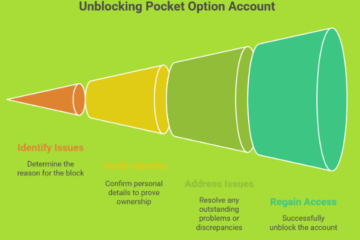In today’s fast-paced business world, leadership isn’t just a title; it’s a mindset. Organizations are constantly seeking professionals who can take initiative, inspire teams, and lead change. But for many working professionals, stepping into leadership roles can feel challenging. Between demanding schedules and evolving job requirements, finding time to grow as a leader isn’t easy.
That’s where executive leadership courses come in. These programs are designed to help professionals develop leadership capabilities without pausing their careers. They offer practical insights, flexible learning, and the chance to grow into confident, strategic leaders ready to take on bigger responsibilities.
Why Leadership Skills Matter More Than Ever
The workplace has changed dramatically in recent years. Teams are now more diverse, technology is transforming roles, and decision-making often needs to happen quickly. In such an environment, leadership isn’t limited to top management.
Every professional, regardless of their role, is expected to think like a leader – to guide teams, solve problems, and drive results. This is why many professionals are turning to leadership courses to build essential skills such as:
- Strategic thinking to make informed, long-term decisions.
- Effective communication to align teams and build trust.
- Adaptability to handle uncertainty and change.
- Empathy and collaboration to lead diverse groups successfully.
- Decision-making rooted in clarity and confidence.
Learning these skills through structured programs allows professionals to grow faster and lead with impact in their current and future roles.
How Executive Leadership Courses Help Working Professionals
For many, leadership can seem like an abstract concept; something learned only through years of experience. But modern leadership development programs prove that it can be learned, practiced, and refined through guided learning and reflection.
Here’s how these programs make leadership growth achievable for busy professionals:
1. Learning While You Work
Most executive leadership courses are designed with flexibility in mind. Online sessions, weekend classes, and project-based assignments make it possible for professionals to continue learning without stepping away from their careers. This balance ensures that learning becomes part of daily work rather than a separate activity.
2. Real-World Application
Unlike theoretical lessons, these programs emphasize practical learning. Participants work on real-world business challenges, case studies, and simulations that mirror actual leadership situations. This approach helps professionals apply new strategies directly to their workplace.
3. Networking with Industry Peers
A big advantage of leadership development programs is the opportunity to connect with peers from different industries. This exchange of ideas, perspectives, and experiences not only broadens one’s understanding but also builds a valuable professional network.
4. Self-Reflection and Growth
True leadership begins with self-awareness. These programs often encourage participants to reflect on their strengths, communication styles, and decision-making patterns. This helps professionals identify areas for improvement and build on their unique leadership style.
5. Guidance from Experts
Participants benefit from the experience of seasoned mentors and instructors who bring deep insights from the corporate world. Learning from leaders who have faced similar challenges helps bridge the gap between theory and practice.
Expert Insight: The Evolving Definition of Leadership
Leadership experts often say that the most successful leaders are not those who control, but those who connect. A senior business coach once said, “Leadership today is about empathy, communication, and adaptability. The technical skills that helped you start your career aren’t the same ones that will help you lead.”
This shift highlights the growing need for professionals to evolve continuously. Leadership is no longer about position or power; it’s about influence, collaboration, and vision. And these are exactly the skills that modern leadership courses aim to develop.
Who Can Benefit from Leadership Courses?
You don’t need to be a senior executive to benefit from a leadership course. In fact, professionals at all stages of their careers can gain from it.
- Mid-level managers looking to move into senior roles.
- Team leads who want to improve people management and motivation.
- Aspiring leaders preparing to take on more responsibility.
- Entrepreneurs and founders who need to lead teams and grow their businesses.
These programs cater to different experience levels, allowing each participant to gain insights relevant to their career stage.
Choosing the Right Leadership Development Program
With so many options available, selecting the right program depends on your goals and learning preferences. Look for:
- Relevance: Choose programs that match your industry or leadership challenges.
- Flexibility: Opt for formats that fit your schedule, whether online or hybrid.
- Practical learning: Ensure the program includes case studies, projects, and real-world applications.
- Mentorship: Seek programs that offer guidance from experienced leaders.
Investing in the right leadership development program can be a turning point in your career. It helps you transition from managing tasks to leading people, and from executing ideas to shaping vision.
Leadership as a Lifelong Journey
The best leaders never stop learning. Leadership isn’t a destination but a continuous process of growth, reflection, and improvement. Executive leadership courses give professionals the structure and support to build this mindset while balancing their work commitments.
In a world where change is constant, those who invest in learning and personal growth will always stay ahead. By enrolling in leadership courses, working professionals can gain the confidence, perspective, and skills needed to lead with purpose, not just within their teams, but across their organizations.



